
Historic Heartbeat of Rennes: The Centre Neighbourhood
Centre in Rennes is a captivating blend of history, culture, and modern vibrancy. As the old town's core, it offers a picturesque setting with its cobbled streets, half-timbered houses, and stunning medieval architecture. Walking through Centre is like stepping into a living museum, where each corner tells a story of the city's rich past. The neighbourhood is home to significant landmarks, such as the majestic Rennes Cathedral and the bustling Place des Lices, known for its Saturday market. Here, you can immerse yourself in the local culture, tasting regional delicacies and mingling with friendly locals. The area's charm is enhanced by its numerous cafes and boutiques, perfect for leisurely strolls and window shopping. Art and history enthusiasts will find plenty to explore in Centre, with its array of museums, galleries, and historical sites. The Musée des Beaux-Arts de Rennes is a must-visit, showcasing an impressive collection of artworks from various periods. Additionally, the Thabor Park, with its beautiful gardens and serene atmosphere, provides a lovely respite from the urban hustle.
Local tips in Centre
- Visit the Place des Lices on Saturday mornings to experience one of France's largest outdoor markets.
- Wear comfortable shoes; the cobblestone streets, while charming, can be tough on the feet.
- Take a guided walking tour to fully appreciate the history and architecture of the area.
- Spend some time at Thabor Park for a relaxing break amidst beautiful gardens.
- Check the local events calendar; Centre often hosts festivals, concerts, and cultural events.
Historic Heartbeat of Rennes: The Centre Neighbourhood
Centre in Rennes is a captivating blend of history, culture, and modern vibrancy. As the old town's core, it offers a picturesque setting with its cobbled streets, half-timbered houses, and stunning medieval architecture. Walking through Centre is like stepping into a living museum, where each corner tells a story of the city's rich past. The neighbourhood is home to significant landmarks, such as the majestic Rennes Cathedral and the bustling Place des Lices, known for its Saturday market. Here, you can immerse yourself in the local culture, tasting regional delicacies and mingling with friendly locals. The area's charm is enhanced by its numerous cafes and boutiques, perfect for leisurely strolls and window shopping. Art and history enthusiasts will find plenty to explore in Centre, with its array of museums, galleries, and historical sites. The Musée des Beaux-Arts de Rennes is a must-visit, showcasing an impressive collection of artworks from various periods. Additionally, the Thabor Park, with its beautiful gardens and serene atmosphere, provides a lovely respite from the urban hustle.
Iconic landmarks you can’t miss
Parc du Thabor
Experience the beauty and tranquility of Parc du Thabor, a breathtaking urban park in Rennes, France, perfect for relaxation and exploration.
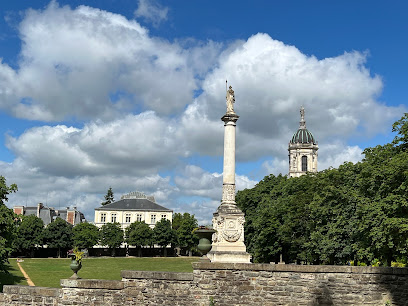
Cathédrale Saint-Pierre
Explore the breathtaking Cathédrale Saint-Pierre, a Gothic masterpiece in Rennes, rich in history, art, and spirituality.
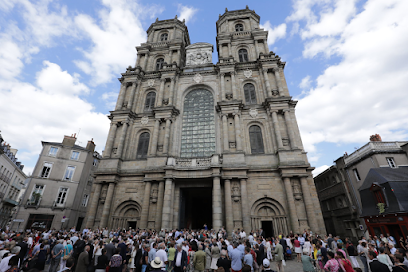
Cathedral Saint-Pierre de Rennes
Explore the architectural beauty and rich history of the Cathedral of Saint-Pierre in Rennes, a stunning landmark for every traveler.
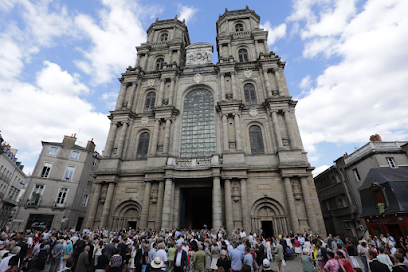
Musée des Beaux-Arts de Rennes
Explore centuries of artistic expression at the Musée des Beaux-Arts de Rennes, where history and creativity converge in a stunning cultural experience.
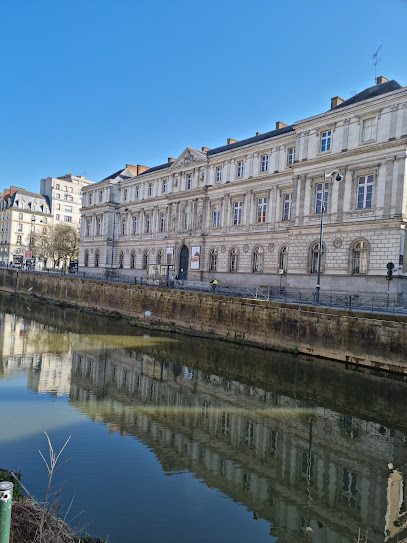
Portes Mordelaises - Site historique Rennes centre
Explore the historical essence of Rennes at Portes Mordelaises, a stunning 15th-century gateway and a must-see landmark for every visitor.
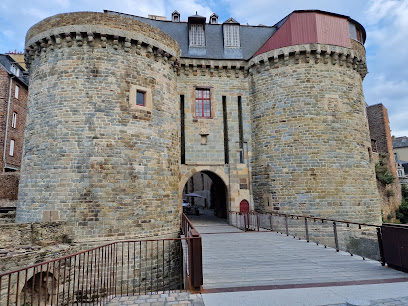
Palais Saint-Georges
Explore the architectural beauty and historical significance of Palais Saint-Georges, a cultural gem in the heart of Rennes, France.
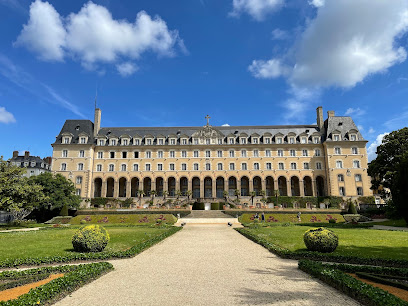
Place du Champ Jacquet (Leperdit statue)
Explore the captivating Place du Champ Jacquet in Rennes, home to the historic Leperdit statue and charming local boutiques.
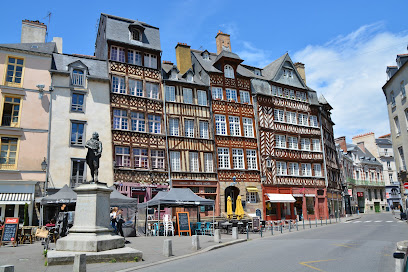
Rennes Centre Historique
Discover the charm of Rennes Centre Historique, a historical landmark rich in culture, stunning architecture, and delightful local cuisine in the heart of France.
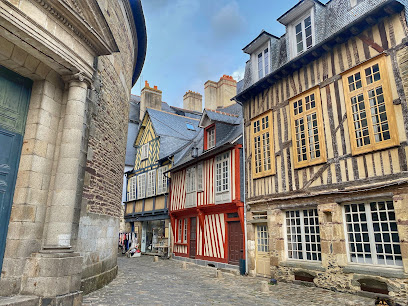
Place de l'Ordre National du Mérite
Explore the serene beauty of Place de l'Ordre National du Mérite, a tranquil city park in Rennes, perfect for relaxation and cultural exploration.
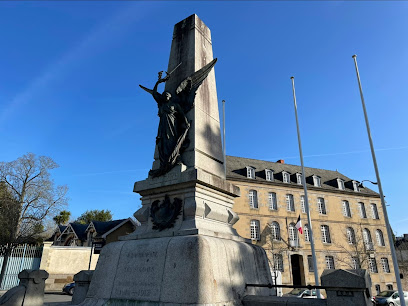
Place du Colombier
Discover the historical charm of Place du Colombier in Rennes, a vibrant square that embodies local culture and stunning architecture.
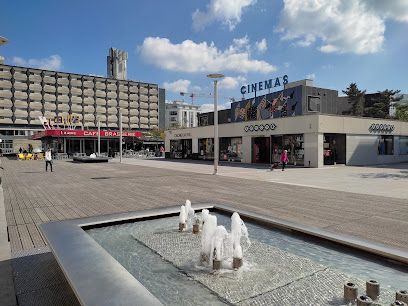
Tour Duchesne
Discover the historical significance and architectural beauty of Tour Duchesne, a must-visit landmark in the heart of Rennes, France.
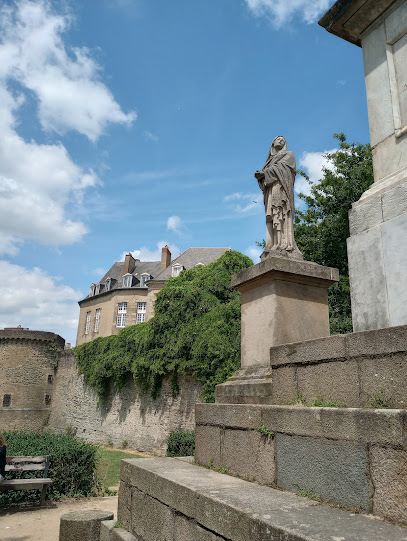
Unmissable attractions to see
Musée de Bretagne
Explore Brittany's captivating history and culture at Musée de Bretagne in Rennes, with extensive collections from prehistory to modern times.
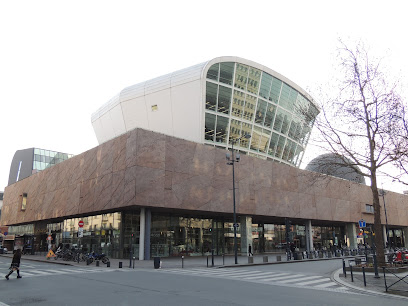
Parlement de Bretagne
Discover the Parlement de Bretagne in Rennes: a stunning architectural masterpiece and a symbol of Breton history and cultural identity.
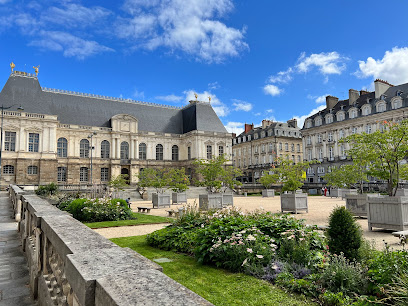
Le Palais du Parlement de Bretagne
Discover the Palais du Parlement de Bretagne in Rennes, a magnificent symbol of Breton history, architecture, and cultural identity.
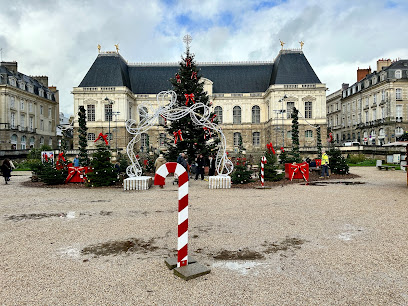
Essential places to dine
La Saint-Georges
Discover authentic Brittany flavors at La Saint-Georges, where every crêpe tells a story of French culinary tradition.
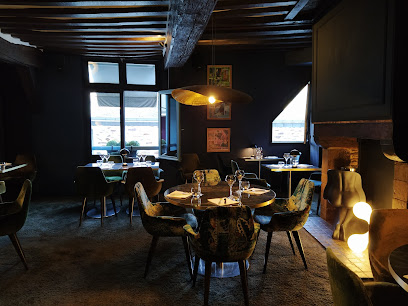
La Chope
Discover La Chope in Rennes: A delightful bistro serving exquisite haute French cuisine in an inviting atmosphere.
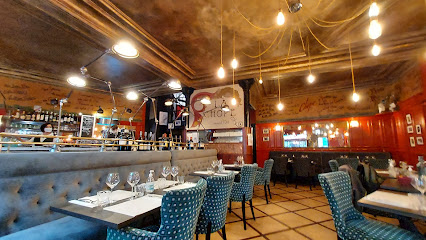
L' AOC
Discover authentic French cuisine at L' AOC in Rennes, where local ingredients meet exquisite culinary artistry.
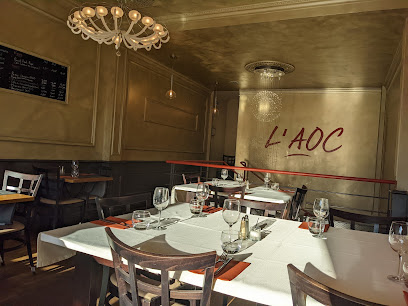
Le Café des Bains
Discover authentic French cuisine at Le Café des Bains in Rennes - where tradition meets taste in every dish.
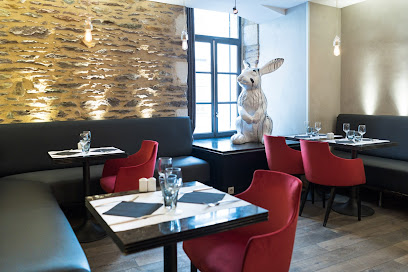
La Réserve
Experience exquisite French cuisine at La Réserve in Rennes, featuring seasonal dishes and an exceptional wine cellar for discerning palates.
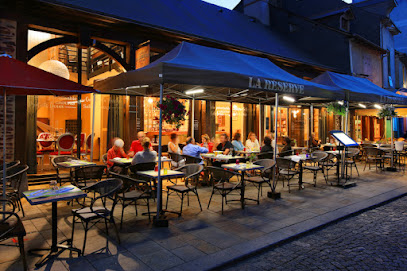
Le Bistro Volney
Experience exquisite modern French cuisine at Le Bistro Volney in Rennes—where tradition meets innovation in a cozy bistro setting.

Restaurant Chez Les Garçons : centre-ville de Rennes
Experience authentic French cuisine at Restaurant Chez Les Garçons in Rennes, where delicious vegetarian options meet family-friendly ambiance.
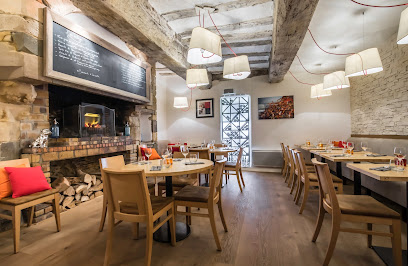
Racines
Experience the essence of French gastronomy at Racines, Rennes' finest dining destination with seasonal delights and artistic presentations.
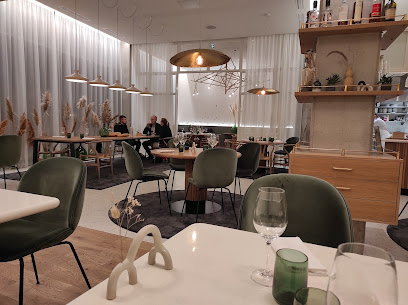
La Closerie
Experience modern French cuisine at La Closerie in Rennes – where seasonal flavors meet culinary artistry in a stunning atmosphere.
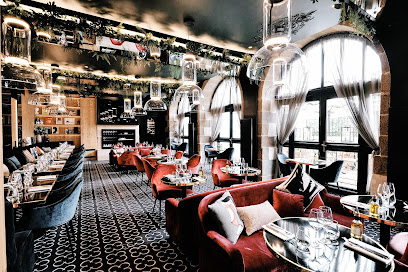
Le Bistrot Des Remparts
Experience authentic French cuisine at Le Bistrot Des Remparts in Rennes - a culinary delight combining tradition with modern flair.
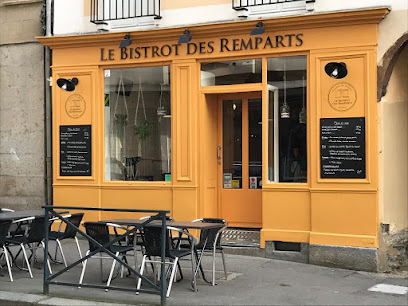
Markets, malls and hidden boutiques
Galeries Lafayette Rennes
Discover Galeries Lafayette Rennes, your ultimate destination for fashion, beauty, and style in the heart of Brittany's vibrant capital.
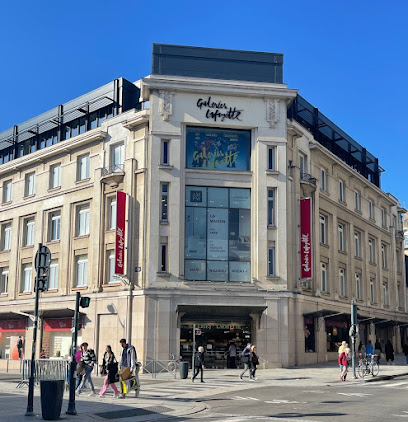
UNIQLO RENNES
Explore UNIQLO Rennes for stylish, affordable clothing for the whole family in the heart of the city.
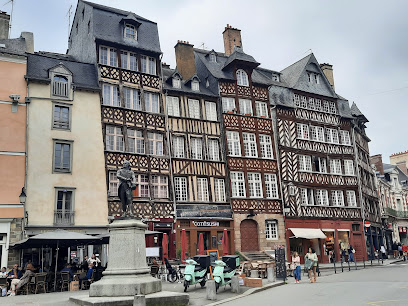
French Blossom
Experience the essence of French design at French Blossom, a charming gift shop in Rennes offering unique children's clothing, home goods, and toys.
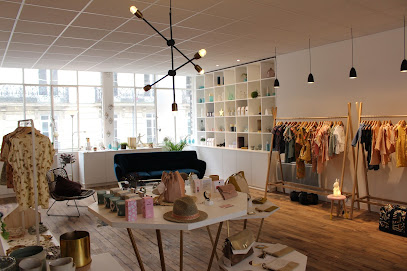
Made in Frogs
Explore Made in Frogs in Rennes for unique gifts, stylish accessories, and home goods that embody the city's charm and creativity.
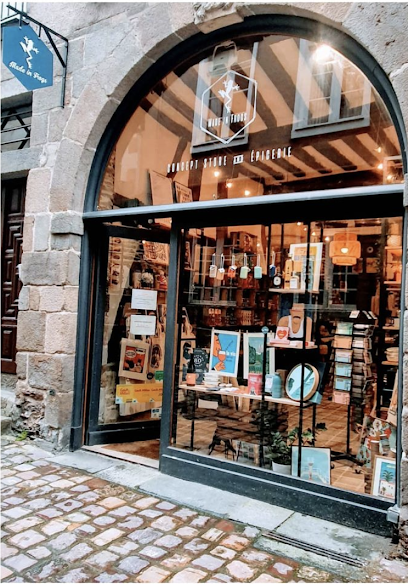
Chouette ! Votre boutique de créateurs à Rennes
Explore Chouette in Rennes for unique gifts, handcrafted jewelry, and a taste of local artistry in a charming boutique setting.
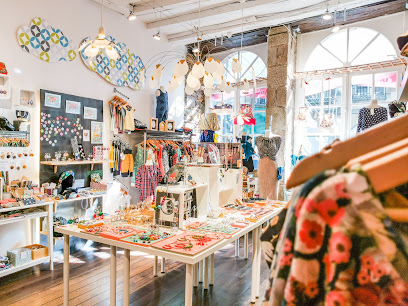
A l'heure des rêves
Discover the enchanting world of A l'heure des rêves in Rennes, a boutique filled with unique home goods and artisanal treasures.
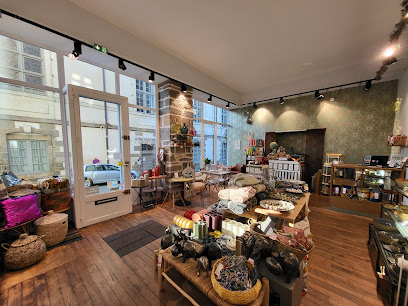
Le Grenier des Anges
Explore Le Grenier des Anges: a unique gift shop and dress store in Rennes, offering local artistry and stylish fashion.
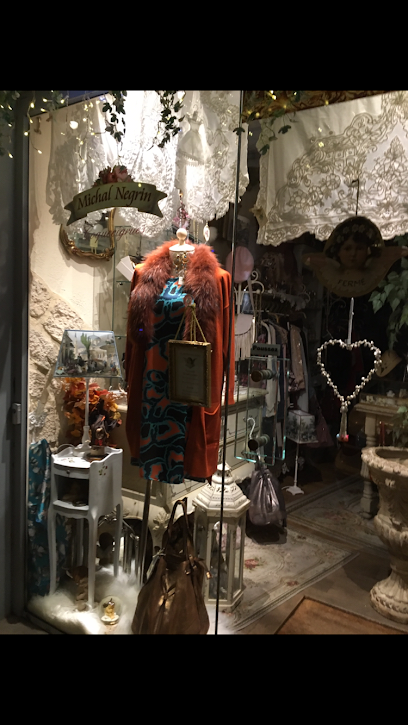
Nij
Discover unique souvenirs and local crafts at Nij, a charming gift shop in the heart of Rennes, capturing the essence of Brittany.
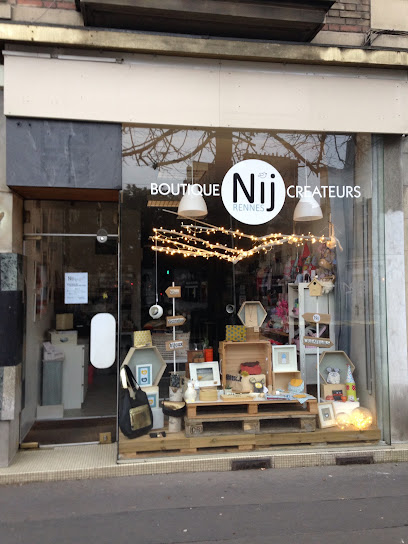
Project Store Rennes
Explore Project Store Rennes for a unique blend of fashion and crafting supplies, celebrating local artisanship in the heart of Brittany.
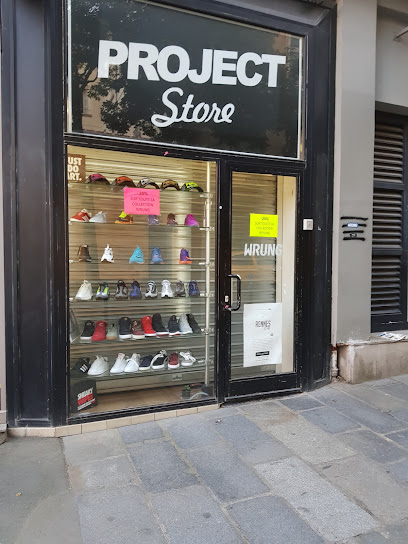
SARAH store
Explore Rennes' vibrant fashion scene at SARAH store, where local design meets unique style for the perfect souvenir.
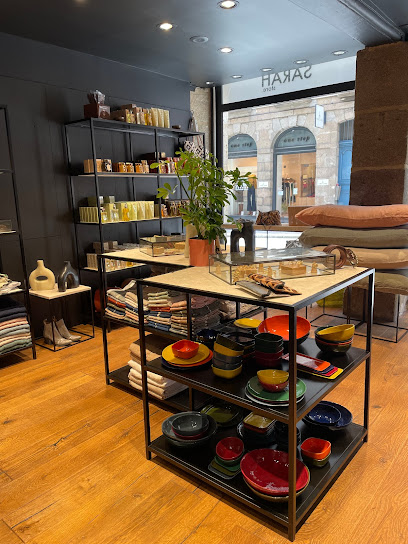
Essential bars & hidden hideouts
O'Connell's Irish Pub
Discover the heart of Irish culture in Rennes at O'Connell's Irish Pub, where hearty meals and lively sports await every visitor.
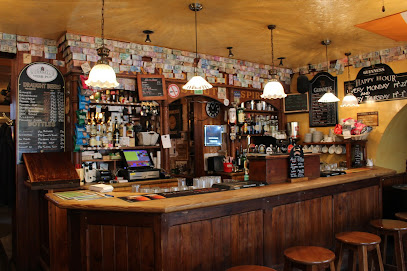
L’Atelier de l’Artiste
Experience the vibrant atmosphere and local culture at L'Atelier de l'Artiste, a cozy bar in the heart of Rennes, France.
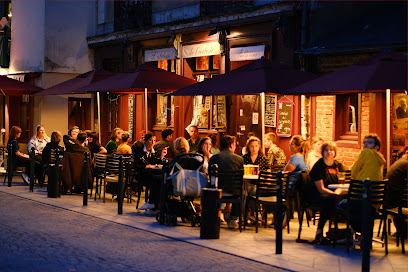
Ty Anna Tavarn
Discover Ty Anna Tavarn in Rennes - a lively bar and live music venue offering local drinks and vibrant entertainment in a charming atmosphere.
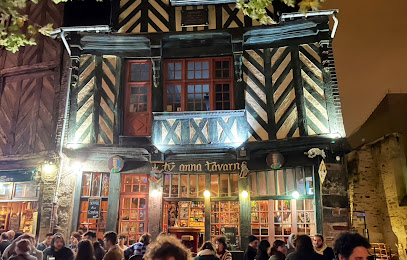
Bar le Saint Germain
Experience the vibrant atmosphere and delicious flavors at Bar le Saint Germain, a beloved bar and restaurant in the heart of Rennes, France.
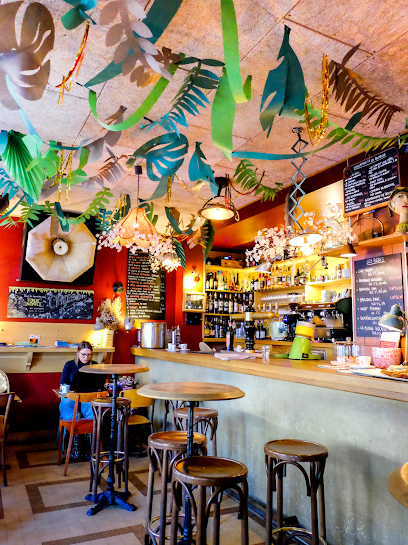
Le Comptoir
Experience the vibrant nightlife of Rennes at Le Comptoir, where local flavors and crafted cocktails create unforgettable moments.
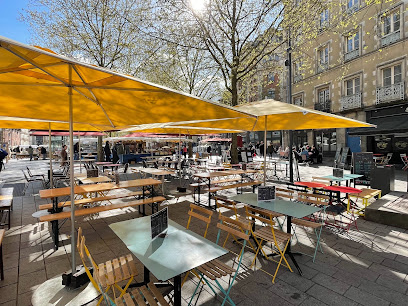
Bar du Champ Jacquet
Experience the lively atmosphere and delightful drinks at Bar du Champ Jacquet, the perfect spot to unwind in Rennes.
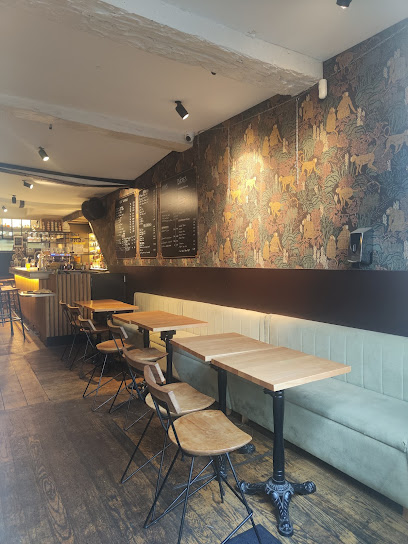
Le Vieux Saint-Etienne
Experience the cozy ambiance and delightful Italian cuisine at Le Vieux Saint-Etienne, a top bar and restaurant in Rennes, France.
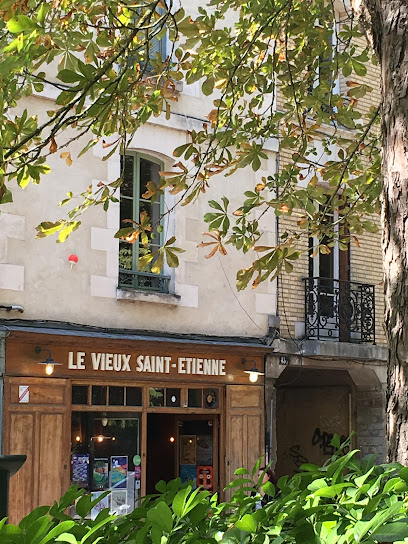
Les Innocents
Savor exquisite cocktails in a vibrant atmosphere at Les Innocents, the must-visit cocktail bar in Rennes, France.
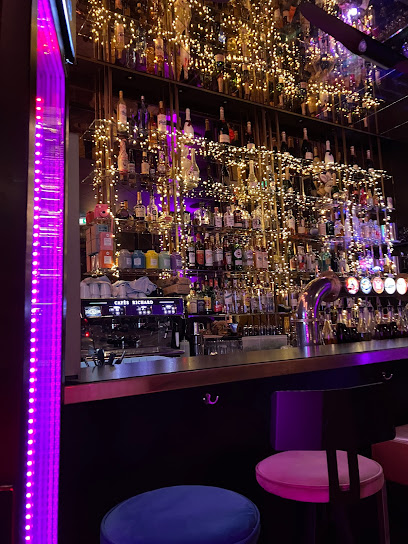
Le Petit Bar
Experience the cozy charm of Le Petit Bar in Rennes, where local culture meets delightful drinks in a welcoming atmosphere.
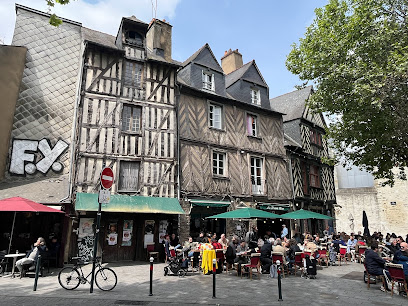
Bar les Trois Couleurs
Explore the vibrant atmosphere and delightful drinks at Bar les Trois Couleurs in Rennes, a must-visit for every traveler.
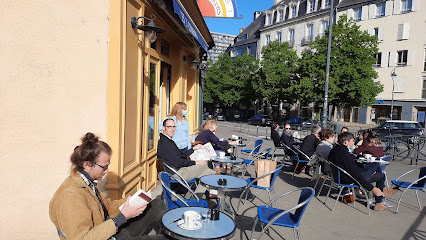
Local Phrases
-
- HelloBonjour
[bon-zhoor] - GoodbyeAu revoir
[oh ruh-vwah] - YesOui
[wee] - NoNon
[noh] - Please/You're welcomeS'il vous plaît/De rien
[seel voo pleh/duh ryen] - Thank youMerci
[mehr-see] - Excuse me/SorryExcusez-moi/Désolé
[ex-kew-zay mwah/dey-zoh-lay] - How are you?Comment ça va?
[koh-mohn sah vah] - Fine. And you?Bien. Et vous?
[byen. ay voo] - Do you speak English?Parlez-vous anglais?
[par-lay voo ahn-glay] - I don't understandJe ne comprends pas
[zhuh nuh kohm-prahnd pah]
- HelloBonjour
-
- I'd like to see the menu, pleaseJe voudrais voir la carte, s'il vous plaît
[zhuh voo-dray vwahr lah kart, seel voo pleh] - I don't eat meatJe ne mange pas de viande
[zhuh nuh mahnzh pah duh vyand] - Cheers!Santé!
[sahn-tay] - I would like to pay, pleaseJe voudrais payer, s'il vous plaît
[zhuh voo-dray pay-ay, seel voo pleh]
- I'd like to see the menu, pleaseJe voudrais voir la carte, s'il vous plaît
-
- Help!Au secours!
[oh suh-coor] - Go away!Allez-vous en!
[ah-lay voo ahn] - Call the Police!Appelez la police!
[ah-pay-lay lah poh-lees] - Call a doctor!Appelez un médecin!
[ah-pay-lay uh may-deh-sahn] - I'm lostJe suis perdu(e)
[zhuh swee pair-doo] - I'm illJe suis malade
[zhuh swee mah-lahd]
- Help!Au secours!
-
- I'd like to buy...Je voudrais acheter...
[zhuh voo-dray zah-shtay...] - I'm just lookingJe regarde juste
[zhuh ruh-gard zhust] - How much is it?Combien ça coûte?
[kohm-byen sah koot] - That's too expensiveC'est trop cher
[say troh shair] - Can you lower the price?Pouvez-vous baisser le prix?
[poo-vez voo bay-say luh pree]
- I'd like to buy...Je voudrais acheter...
-
- What time is it?Quelle heure est-il?
[kell uhr eh-teel] - It's one o'clockIl est une heure
[eel eh oon uhr] - Half past (10)Dix heures et demie
[dees uhr ay duh-mee] - MorningMatin
[mah-tahn] - AfternoonAprès-midi
[ah-pray mee-dee] - EveningSoir
[swahr] - YesterdayHier
[ee-air] - TodayAujourd'hui
[oh-zhoor dwee] - TomorrowDemain
[duh-man] - 1Un
[uhn] - 2Deux
[duh] - 3Trois
[twah] - 4Quatre
[kah-truh] - 5Cinq
[sank] - 6Six
[sees] - 7Sept
[set] - 8Huit
[wheat] - 9Neuf
[nurf] - 10Dix
[dees]
- What time is it?Quelle heure est-il?
-
- Where's a/the...?Où est...?
[ooh eh...] - What's the address?Quelle est l'adresse?
[kell eh lah-dress] - Can you show me (on the map)?Pouvez-vous me montrer (sur la carte)?
[poo-vez voo muh mohn-tray (soor lah kart)] - When's the next (bus)?Quand est le prochain (bus)?
[kahn eh luh proh-shahn (boos)] - A ticket (to ....)Un billet (pour ....)
[uhn bee-yay (poor)]
- Where's a/the...?Où est...?
History of Centre
-
Rennes was founded in the 1st century BC as a Roman settlement called Condate. Its strategic location at the confluence of the Ille and Vilaine rivers facilitated trade and military movements. The area now known as Centre in Rennes began to develop as a hub for commerce and administration, with significant Roman structures influencing its layout.
-
During the medieval period, Rennes emerged as a key city in Brittany. The construction of the medieval walls in the 14th century fortified the Centre neighbourhood, making it a center for political power and trade. The Parliament of Brittany was established in the city in 1553, further solidifying its significance in regional governance.
-
The 16th century brought a cultural renaissance to Rennes, with the construction of many buildings that still define the Centre today. Notable structures, such as the Place des Lices and the Palais du Parlement, showcased the architectural styles of the period. This era further established Rennes as a cultural and administrative center in Brittany.
-
The French Revolution in the late 18th century had a profound impact on Rennes. The Centre became a focal point for revolutionary activities, including the establishment of the National Guard. The tumultuous period led to the reorganization of local governance and the secularization of institutions, reshaping the societal landscape of Rennes.
-
The 19th century heralded a new phase of industrialization in Rennes, which affected the Centre neighbourhood significantly. The construction of railways and factories attracted a workforce, leading to urban expansion. This period saw the development of new districts surrounding the Centre, while the historical core retained its importance as a commercial and cultural hub.
-
After World War II, Rennes underwent significant reconstruction and modernization. The Centre area saw the restoration of historical buildings and the development of modern infrastructure. The introduction of pedestrian zones and urban green spaces revitalized the neighbourhood, blending historical charm with contemporary urban life.
Centre Essentials
-
Centre is easily accessible from other neighborhoods in Rennes via public transport. The Rennes Metro Line A and Line B connect Centre to various parts of the city. The main train station, Gare de Rennes, is located close to Centre, offering connections to major cities in France. Local buses also serve the area, with several stops throughout Centre, making it convenient to travel from neighborhoods such as Thabor and Villejean.
-
The best way to explore Centre is on foot, as many attractions are within walking distance. For longer distances, the Rennes Metro is efficient and reliable, with frequent service. Buses are also available, and a bike-sharing program (Star Bike) allows you to rent bicycles for a more leisurely ride through the city. Taxis and rideshare services like Uber are also options for late-night travel or when public transport is less frequent.
-
Centre is generally safe for tourists, but standard precautions should be taken. Avoid poorly lit areas at night, particularly around the outskirts. Petty crime, such as pickpocketing, can occur in crowded places like markets and public transport. While Rennes has no specific high-crime areas that target tourists, it's wise to remain vigilant and keep belongings secure.
-
In case of an emergency, dial 112 for police, fire, or medical assistance. The local hospital, Centre Hospitalier Universitaire (CHU) de Rennes, provides emergency services. Always have travel insurance that covers medical emergencies. Pharmacies are plentiful throughout Centre, and many are open late, offering over-the-counter medications for minor health issues.
-
Fashion: Do dress appropriately for the weather and occasion; smart casual is common. Don't wear overly casual clothing in fine dining or cultural settings. Religion: Do respect local customs and dress modestly when visiting places of worship. Don't take photographs in churches without permission. Public Transport: Do give your seat to the elderly or those in need. Don't eat or drink on public transport. Greetings: Do greet people with a friendly 'Bonjour' and a handshake. Don't assume familiarity; use titles and surnames until invited to use first names. Eating & Drinking: Do try local specialties like galettes and cider. Don't waste food or leave the table without excusing yourself.
-
To experience Centre like a local, visit the Marché des Lices, a vibrant market held every Saturday, showcasing local produce and artisan goods. Take time to explore the historic streets and discover hidden cafés and boutiques. Engage with locals at cultural events or festivals, which are often held in the area. Don’t miss a leisurely stroll through Parc du Thabor, a beautiful park that offers a peaceful escape in the heart of the city.
Trending Landmarks in Centre
-
Parc du Thabor
-
Cathédrale Saint-Pierre
-
Cathedral Saint-Pierre de Rennes
-
Musée des Beaux-Arts de Rennes
-
Portes Mordelaises - Site historique Rennes centre
-
Palais Saint-Georges
-
Place du Champ Jacquet (Leperdit statue)
-
Rennes Centre Historique
-
Place de l'Ordre National du Mérite
-
Place du Colombier
-
Tour Duchesne
Nearby Cities to Centre
-
Things To Do in Saint-Malo
-
Things To Do in Nantes
-
Things To Do in Angers
-
Things To Do in St. Clement
-
Things To Do in St. Helier
-
Things To Do in Gorey
-
Things To Do in St. Aubin
-
Things To Do in St. Brelade
-
Things To Do in St. Peter
-
Things To Do in St. Lawrence
-
Things To Do in Trinity
-
Things To Do in St. Ouen
-
Things To Do in Caen
-
Things To Do in St. Anne
-
Things To Do in St. Martin











